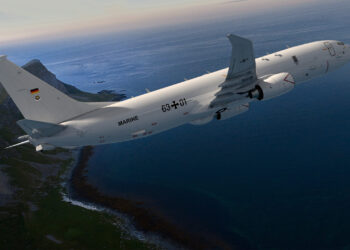Agence France-Presse,
MOGADISHU: The leader of Somali pirates holding a huge Saudi oil tanker denied Monday that the hijackers had lowered their ransom demand, insisting they still wanted 25 million dollars for the ship's release.
“We have not changed the amount of the ransom, it remains at exactly 25 million dollars. If we want to change it, it will have to be agreed unanimously with all the people involved,” Mohamed Said told AFP.
Said, the leader and spokesman of the group holding the ship, was reached by phone in the coastal village of Harardhere, off which the Sirius Star was anchored after its capture in the Indian Ocean on November 15.
He denied reports that the ransom had been lowered and warned against any forceful rescue of the huge tanker carrying around 100 million dollars worth of crude oil they seized in a space of 16 minutes.
“We are moving the ship from time to time and from place to place for tactical reasons. It's like a war game. We are not taking the ship too far,” Said explained.
“We still have enough people on the ground and on the ship. Nobody can terrorise us. Any attempt to take the ship by force is futile.”
Tensions mounted Sunday between the pirates and hardline Islamist Shebab fighters who threatened to attack the hijackers ahead of a November 30 deadline they set for the Saudi owners of the vessel to pay ransom.
The Shebab (youth) armed group, which controls much of southern and central Somalia, has in recent days positioned fighters in and around Harardhere.
Islamist leaders have stressed that piracy is a capital offence under Islam and officially condemned the surge in acts of piracy in Somalia's waters, which has begun to disrupt international trade.
But Said told AFP at the weekend that his men were not afraid of the Shebab.
“We are the Shebab of the sea and we can't be scared by the Shebab of the land,” he said. “If anybody attempts to attack, that would be suicide.”
The seizure of the Sirius Star has sparked alarm around the world, and foreign navies have sent patrol ships off the dangerous Somali waters to try and stem the spiralling crime.
On Monday, maritime groups called on the United Nations to mount an international naval blockade to halt the surge of piracy off the lawless Horn of Africa state.
“Maybe we should have the UN coordinating naval action off Somalia. It could impose a blockade along the Somali coast,” said Peter Swift of the London-based International Association of Independent Tanker Owners (Intertanko).
“We have asked (the UN) for a long time for naval support for merchant shipping to protect the seafarers and world trade,” he said, adding they had requested naval help and aerial patrols.
NATO Secretary General Jaap de Hoop Scheffer said the alliance was not considering any naval blockade to combat piracy.
“Blocking ports is not contemplated by NATO,” he said, adding that such action has not been endorsed by the UN Security Council. “This is, at the moment, not in the cards.”
Shipping companies alarmed by rampant piracy are now re-routing around South Africa, despite the deterrent of higher costs, industry groups said Monday.
Two major players, Odfjell of Norway and A.P. Moeller-Maersk of Denmark, have already announced that part or all of their fleets will sail around the Cape of Good Hope instead of through the pirate-infested Red Sea.
“It is unfortunate that at a time like this when the global economy is such, that shipping companies would have to take measures which would incur more cost. There would definitely be delays of up to two to three weeks,” said Thomas Timlen from the Denmark-based Baltic and International Maritime Council.
Somalia's Gulf of Aden and Indian Ocean waters have seen nealry 100 vessel attacks this year, which has threatened to choke one of the world's busiest maritime trade routes.









